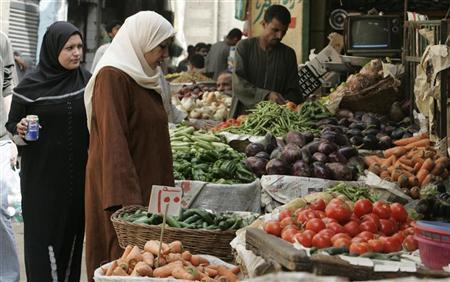That was five years ago. Could the timing finally be right in 2011?
The Bush administration balked at a free-trade agreement with Egypt in 2006 for a simple reason: freedom. Egyptians didn’t have enough of it. Shortly before Rice made her announcement, Egypt had cancelled a series of local elections. So the United States cancelled the talks that might have led to a trade pact.
But now everything in Egypt has changed. Longtime president Hosni Mubarak is gone, the military is in charge, and national elections supposedly are coming. Even Libya is in the throes of a possible transformation.
What the future holds for Egypt and the region remains to be seen–but suddenly we have the opportunity to use trade policy to advance both the economic and national security interests of the United States in the Middle East. It makes sense to push for a U.S.-Egypt Free Trade Agreement.
Egypt is a poor country. As it emerges from its period of unrest, its first order of economic business will be to restore a devastated tourism industry. From my experience there, it’s a fantastic country. It must persuade the world’s travelers that they’re safe and Egypt is anxious to welcome them as they visit the Pyramids, see the Sphinx, and cruise the Nile.
Cairo must also consider long-term strategies for economic growth. About one-fifth of Egyptians live in poverty. Unemployment rates are high, especially among young adults. The government currently controls too much of the economy–divisions of the military actually operate day-care centers and manufacture television sets, according to the New York Times. Until these factors change, Egypt will remain politically unstable–and peace in the region will remain an uncertainty.
Americans have a clear interest in the economic health of Egypt. We enjoy a trade surplus with this nation of nearly 80 million people—a situation that is an obvious benefit to U.S. farmers and businesses. Egypt doesn’t produce enough food to feed its own people. Last year, Egypt bought more than $1.5 billion in corn, soybeans, and wheat from the United States. There’s a demand for American-made machinery and equipment as well. We have already set the stage with our efforts in educating and then building feedlot, dairy and grain grading industries showing how cooperation can bring prosperity.
A successful trade agreement would improve our ability to sell what we grow. It would also jump start the Egyptian economy. A study by the Peterson Institute for International Economics suggested that a deal would boost Egyptian exports to the United States by about $1 billion. Another report by Robert Lawrence and Ahmed Galal claimed that an agreement would boost Egyptian GDP by almost 3 percent and income by 1.6 percent as well as lower consumer prices by 1.6 percent.
By helping Egyptians, we help ourselves. The more they thrive, the more they can buy from us. As a recent U.S. Department of Agriculture study points out, developing nations with rising incomes spend more money on high-quality meat products–and American producers can compete with anybody in that market.
Our top concern, however, involves U.S. national security. Egypt’s size, location, and history make it a leader in the Arab world. We have a strong interest in keeping it as an ally as it tries to transition from dictatorship to democracy. There’s no guarantee that this will happen. Throughout the Muslim world, radicalism is an ever-present threat. The Egyptians could hold free and fair elections–and vote into power an American-hating regime that enforces sharia law and sponsors terrorism.
The United States must do what it can to avoid this fate. A trade agreement would help by binding our countries closer together both economically and diplomatically.
This is a cause that President Obama ought to embrace. He came into office with a promise to improve America’s image around the world. Egypt represents one of his administration’s great tests–he must do what he can to enhance the reputation of the United States on the streets of Cairo.
The timing for a free-trade agreement is right now.
Dean Kleckner chairs Truth About Trade & Technology. www.truthabouttrade.org

